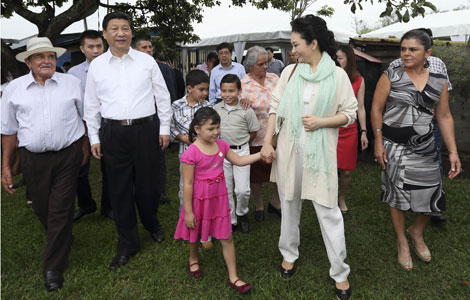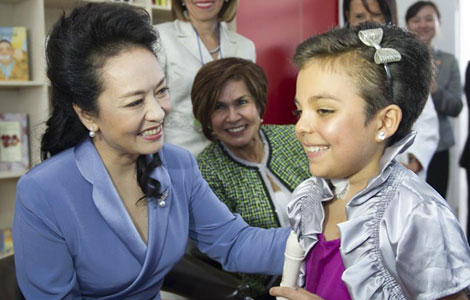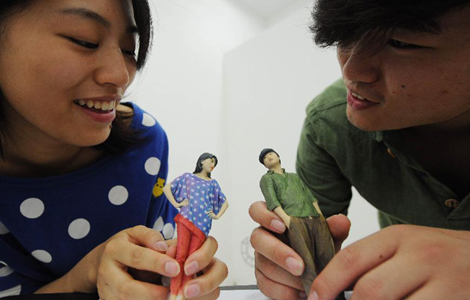1,000 days to keep the Millennium Promise
Updated: 2013-04-01 07:48
By Ban Ki-Moon (China Daily)
|
||||||||
A journey of a thousand miles begins with a single step, but starting this week we can march a thousand days forward into a new future.
On April 5th, the world will reach a vital moment in history's largest and most successful anti-poverty push - the 1,000-day mark before the target date to achieve the Millennium Development Goals.
These eight concrete goals were set in the year 2000, when more leaders than ever before gathered at the United Nations and agreed to cut global poverty and hunger by half, fight climate change and disease, tackle unsafe water and sanitation, expand education and open doors of opportunity for girls and women.
It was not the first time leaders had made lofty promises. Cynics expected the MDGs to be abandoned as too ambitious. Instead, the Goals have helped set global and national priorities, mobilize action, and achieve remarkable results.
In the last dozen years, 600 million people have risen from extreme poverty - a fifty per cent reduction. A record number of children are in primary school - with an equal number of girls and boys for the first time. Maternal and child mortality have dropped. Targeted investments in fighting malaria, HIV/AIDS and tuberculosis have saved millions of lives. Africa has cut AIDS-related deaths by one-third in just the past six years.
There are also goals and targets where we need far more progress. Too many women still die in childbirth, when we have the means to save them. Too many communities still lack basic sanitation, making unsafe water a deadly threat. In many parts of the world, rich and poor alike, inequalities are growing. Too many are still being left behind.
To accelerate action, the international community should take four steps now.
First, scale up success through strategic and targeted investments that have a multiplier effect, boosting results in all other areas: one million community health workers in Africa to serve hard-to-reach areas and keep mothers and children from dying of easily preventable or treatable conditions; scaled-up investments in sanitation; universal access to primary health services, including emergency obstetrical care; and adequate supplies to address HIV and malaria.
Most Viewed
Editor's Picks

|

|

|

|

|

|
Today's Top News
Relationship 'relaunched'
Good start expected for summit
Xi, Mexican president discuss bilateral co-op
Cooperation to drive mutual growth
Chinese president arrives in Mexico for state visit
China is victim of hacking attacks
US to be largest trade partner
China joins fight against hacking
US Weekly

|

|















